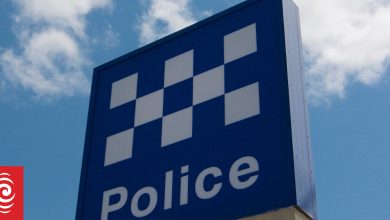‘No humanity’: Asylum seekers in Nauru claim mistreatment but Adeang disagrees

Around 100 asylum seekers are again being held in Australia’s offshore processing centre in Nauru, after numbers dropped to zero in June last year.
Mohammad Bashir Anjum from Pakistan is one being housed in Regional Processing Centre one, or RPC1.
“They are treating not really good,” Anjum, who has been there since February, said.
“No humanity, just treating like animal.”
Anjum ended up in Nauru after he travelled by boat from Indonesia to Broome in north-west Australia.
He said he fled violence – including torture and kidnapping – in his home country twice; once in 2013 and again in 2021 when he returned to Pakistan from Brisbane hoping the situation had improved.
Anjum said he does not know exactly how long he will be kept on Nauru, but he was told by an immigration official it would likely be “many, many years”.
He said there was a lack of concern by staff and a lack of access to healthcare.
He had asked the general practitioner to be seen by an eye specialist three times, but he has not been looked at.
“There is only one GP, just for the fever or the normal thing; but if it is a little bit harder, for example an eye problem, ear problem, teeth problem – no specialist, no one can see that.”
He said the mental health specialists have not been helpful – run by “actors” pretending to be professionals – asking him to repeat his story again and again.
“If you ask every day the same story to me, this is very hard for me; I’m not feeling good.
“They’re not writing. They’re not noting our story.”
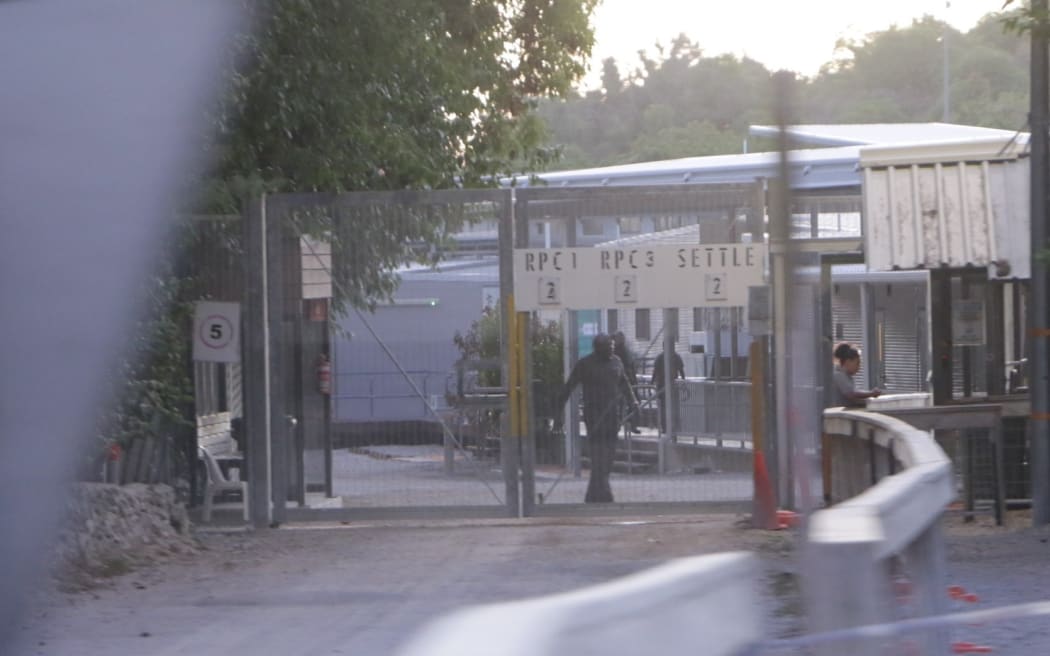
Asylum Seeker Resource Centre’s Jana Favero said the organisation is hearing similar reports again of insufficient healthcare.
“At times there’s only nurses available versus doctors again; we are trying to verify all these reports by asking questions of the government in the department, but it’s impossible to get any information,” Favero, who is the head of Systemic Change, said.
A lawyer with the National Justice Project, George Newhouse, said his organisation is currently running 40 cases for refugees or asylum seekers who were on Nauru, for psychiatric or physical injuries as a result of their time there.
“We’ve had many examples of individuals with cancer diagnosis and other very serious illnesses that have not received proper treatment.”
Nauru President David Adeang said hundreds, maybe even thousands, of people are looking after the wellbeing of the asylum seekers in RPC1.
“Of course our medical facilities are not as what may be expected by others, but what we know is we send them overseas if there is a case to be treated overseas,” he said, during a rare press conference outside of his office in Nauru, which required journalists’ questions to first be pre-approved.
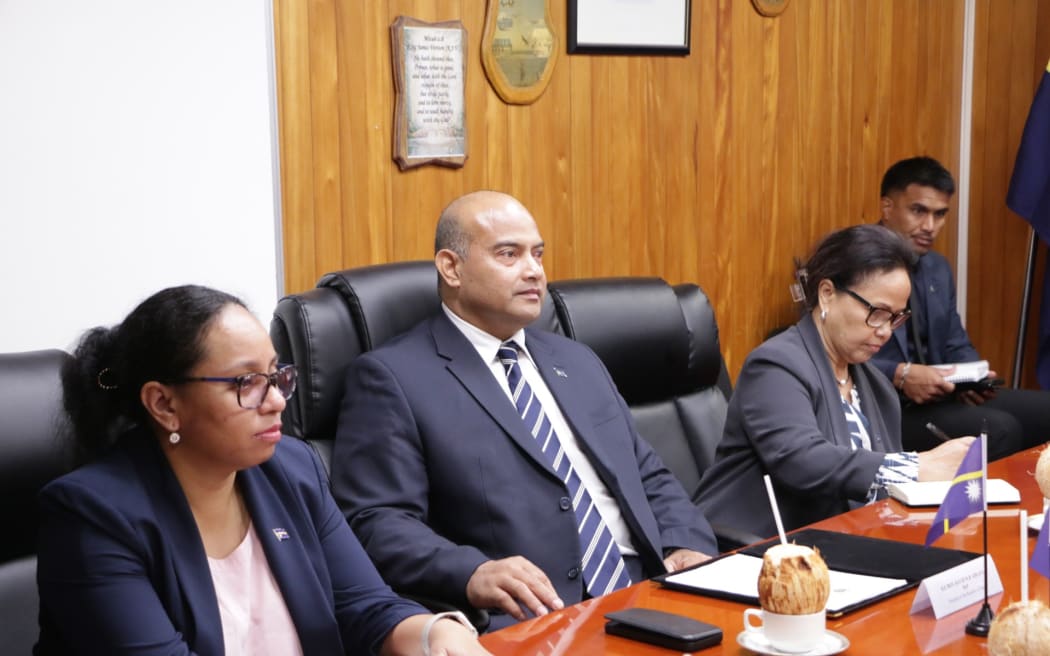
No reputational damage
Adeang said he did not think the regional processing centre had done reputational damage to Nauru.
“I think it has done a lot for Nauru – at one stage it cured all of our unemployment issues.
“But I do think that journalists need to be a bit more fair, a bit more balanced. I know in the hundreds of reports, possibly the thousands of reports regarding RPC, only one has been balanced.
“I think the problem is not RPC but it might be the attitude of certain journalists.”
Nauru has been famously hostile to journalists. In 2018, police detained TVNZ reporter Barbara Dreaver, who was interviewing asylum seekers in the community when the Pacific Islands Forum was being held.
Anjum requested to RPC1 if he could be visited by RNZ Pacific; but he was told it was a matter for Nauru’s government which he does not know how to reach, so the interview was done on the phone instead.
RNZ Pacific was given a ride up to the detention centres at RPC1 with a local man who did not want to be named out of fear of negative repercussions.
Despite being worried about being spotted with a journalist, the man backed the detention centres, saying it was a positive boost for the economy – a flashback to the “glory days” when Nauru was loaded with cash from phosphate mines.
“Lots of employment, lots of cash.”
He said asylum seekers were creating “fake news” and they were making a “big fuss out of nothing” with their complaints.
“The asylum seekers are the ones taking things for granted, demanding more, while they already have more. They demand to go to Australia right away without processing.
“The locals are saying they’re living better than the locals.
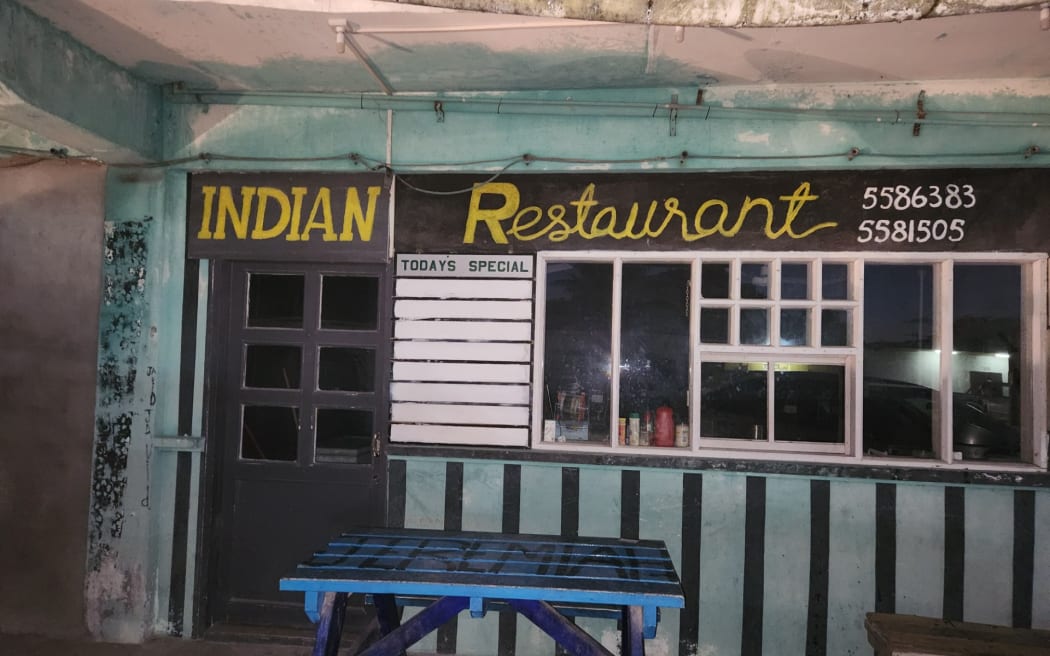
“The truth is they’ve got everything here; they’ve got free transport, they’ve got free food, free Medicare and all those kinds of things – it’s all lies if they’re saying they don’t have this.”
He said most asylum seekers integrate well with the community, with an Indian Restaurant at one stage even opening by someone from Pakistan.
Too small allowance
Umair Bacha from Pakistan has been in Nauru for six months. The first three were spent in RPC1 with another three in the community.
He along with a group of others are staying in what is locally known as Ijuw camp.
Bacha said his experience inside RPC1 was not too bad, and living in the community had been good, but the allocated allowance from Australia is not enough.
Bacha and other asylum seekers in the community said he had been given no update on the timeline for the processing.
Mohammad Saju Ahmed, another asylum seeker living in the community, said he’s only been told it will be a long process.
“Someone says eight years; someone says 10 years,” Ahmed said.
Bacha and Ahmed said they are given an AUS$460 allowance each month to live on and are not allowed to work.
“Here very expensive, price very expensive,” Ahmed said.
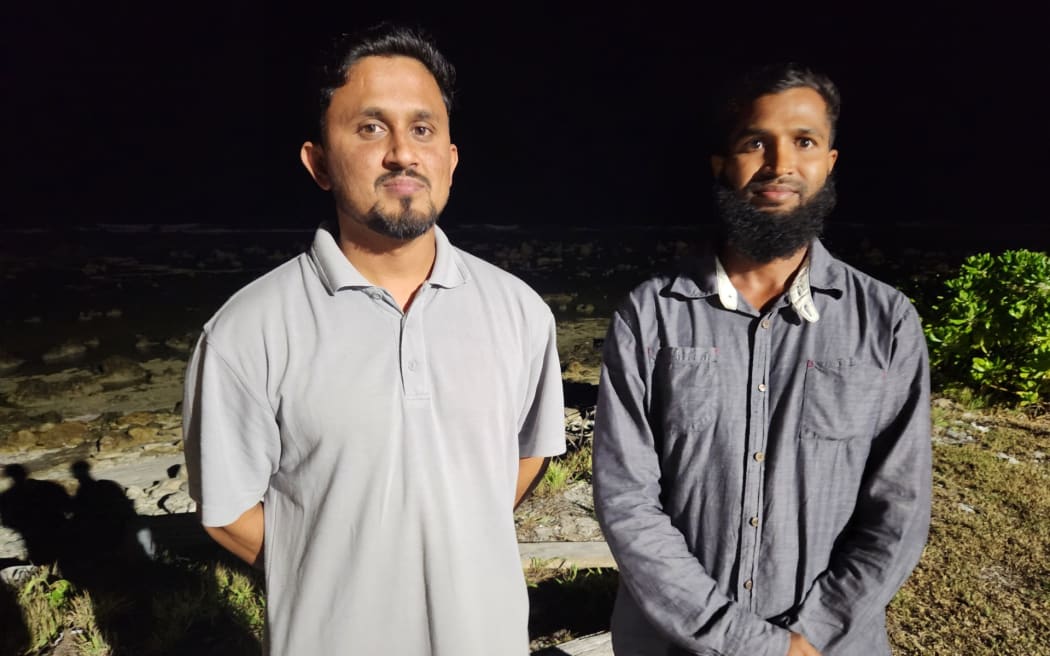
Not eligible for New Zealand
Since 2013, Australia agreed that nobody who arrives by boat seeking protection will be resettled in Australia.
In June 2022, New Zealand agreed to resettle 450 refugees until 2025 from Nauru, under the Australia Refugee Resettlement Arrangement.
A New Zealand government spokesperson said 172 refugees had been resettled in the arrangement and all the refugees that are being considered under the arrangement are now located in Australia.
“Those currently in Nauru are not eligible for the resettlement arrangement between Australia and New Zealand,” the spokesperson said.
“People smuggling is a very serious issue. It challenges the integrity of international borders and migration systems, while generating huge profits for the criminals involved.”
New Zealand Foreign Minister Winston Peters, who was in Nauru on Thursday meeting with President Adeang, said it was up to the Prime Minister to announce if the country would take on more refugees.
When asked if he thinks if Australia should have the detention centres, Peters said countries have sovereignty over their borders.
“No one has a right to say I’m going to land in Australia and I’m going to do what I want,” he said.
“If people are coming in illegally, how come all of a sudden, they’re acquiring rights, that the local people, and dear I say it those who are indigenous, the Aboriginals in this case, don’t have.”
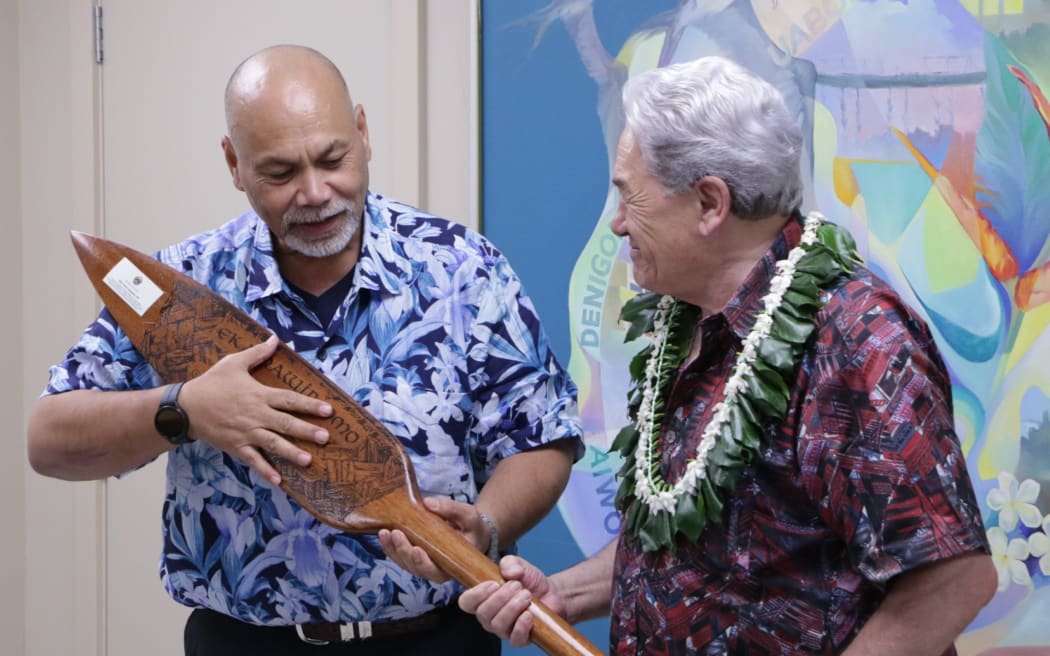
No smartphones in RPC1
Anjum said his smartphone was removed from him in Broome by Australian Border Protection and replaced by a brick phone, which is the same for everyone inside RPC1.
He was told it was for security purposes, but it was not explained to him what that meant.
Asylum seekers have access to email and YouTube but there’s a lot of internet restrictions, Anjum said.
“You can’t search anything; the Google doesn’t work and everything is blocked. You can watch like the video and that’s it. The Facebook Messenger – you can’t use this.”
He said people inside have had family members die but were still not allowed to video call family in their home countries when they requested it. He said he wasn’t allowed to call home when his son was in critical condition after being poisoned.
Favero said WhatsApp was the most important tool a smartphone had.
“It’s how we generally, through our detention advocacy program, we contact people. It’s extremely difficult on Nauru to get through.”
She said it was a struggle previously to get any information out on what was happening and people being denied smartphones makes the problem worse.
“It just again feeds into this total failure on a moral level of offshore detention and why we’re so distressed to see people being transferred to Nauru again.”
Newhouse said he was “extremely concerned” to hear those in detention centres have limited access to the outside world.
“That’s the only way that they can hold their guards and the people that are imprisoning them accountable and protect themselves from human rights abuses, and ensure that they get proper treatment and proper processing of their refugee claims,” he said.
Nauru responsible – Australia
RNZ Pacific sent questions to Australia’s Ministry of Home Affairs last week, including how many people are being held in Nauru, what are the timeframes for asylum claims, and why smart phones have been removed.
A spokesperson for the department said they would not provide details of transferees on Nauru for regional processing due to privacy concerns and operational matters.
However, they said the Nauru government is responsible for the implementation of the regional processing arrangements, including the management of individuals.
“All individuals transferred to Nauru are provided with a mobile phone and have access to the internet,” the spokesperson said.
They said Australia supports the Nauru government to provide health services through a contracted health services provider, which includes torture and trauma counselling and specialist health services such as dentistry, obstetrics, radiography and pharmacy services.
“There has always been at least one doctor on Nauru to provide services to transitory persons,” they said.
According to the news on Radio New Zealand


